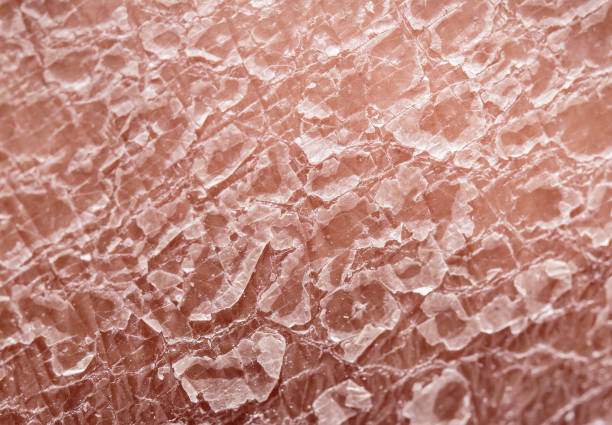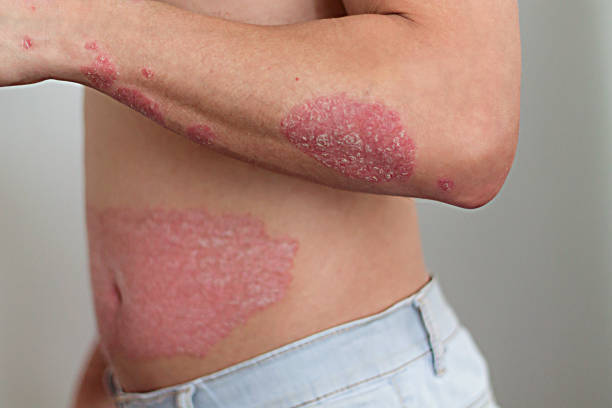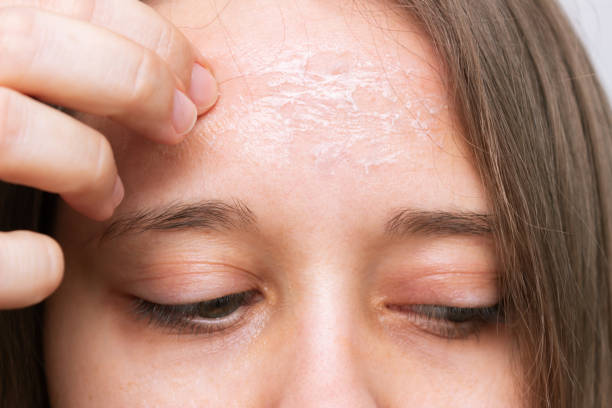If you notice your skin has become dry over time, even when you think you are taking good care of it, you may wonder what the causes of dry skin are. Is it something you are eating, is it the weather, or is it something you are not doing right?
Dry skin is very uncomfortable and can make your skin irritated and itchy, and in worse cases, it becomes flaky and scaly. If you are experiencing this right now, you do not have to worry anymore because, in this guide, we will explore all the possible reasons for your skin dryness so you can avoid them or make plans to repair your skin.
Read also: Dermatologist Recommended Skincare Routine For 30s
What are the Major Causes of Dry Skin?
When the skin loses moisture over time, it becomes dry. However, older adults often have natural dry skin, which is expected because of their age, but here are some other common causes of dry skin.

Swimming
Dry skin is very common with swimmers. Spending a lot of time underwater, especially in water that contains chlorine, can remove the oil barrier, which is the natural protective sebum from your skin. This will cause your skin to lose moisture and become scaly, dry and itchy.
Living in Dry, Desert Climates
Sometimes, the air in our environment can be dry due to climate or weather conditions, which can cause so much trouble for our skin; when the humidity level is down, it causes the skin to become dry and itchy.
See also: How To Get Acne-Free Glowing Skin Naturally
Frequent Hand-washing
Washing your hands too frequently can make them dry, which is a common issue with people who work in healthcare or other industries that require frequent washing of hands. To mitigate this, you can use lukewarm water to wash your hands, avoid alcohol-based soaps and dry your hands with a blow dryer instead of paper towels.
Bathing Often
Bathing is good to keep the body clean and fresh, but too much of it is unnecessary and harmful to the skin. It can rid your skin of its natural oils and moisture and make your skin dry.

Hot Shower
It sometimes feels so nice to stay under the steaming hot shower for so long, especially during cold weather, but this practice can create issues for your skin. Long, hot showers can dry out the oil and moisture from your skin.
Soap May Sap Moisture From the Skin and Scalp
Many soaps, shampoos, and detergents can sap the moisture from your skin and scalp; many of them are even formulated to remove oil from the skin. So, it is essential to be careful when choosing your bathing soaps, laundry detergents, and shampoos.
See also: Natural Face Care for Black Skin
Genetics Can Affect Your Risk for Dry Skin
You may not have considered this as one of the causes of dry skin, but yes, it is true that dry skin can be genetic. Research has shown that there can be some mutations in the genes which control the reduction of filaggrin (a protein that plays a significant role in hydrating the skin barrier). People with this mutation suffer from dry skin and other skin conditions.
Hard Water Can Prevent Moisturisers From Absorbing
When your bathing water contains a high concentration of minerals like calcium and magnesium, it is called hard water; after bathing, the minerals leave a film on your skin, which causes dryness.
According to some dermatologists, heavy metals can turn the natural oils on your skin into a thick substance that clogs the skin glands, preventing moisturisers and other skincare products from penetrating the skin. To prevent this, you can invest in a home filtration system to reduce the minerals and hard metals in your running water.
Skin Conditions, Such as Eczema and Psoriasis
Some other causes of dry skin that you may not have thought about are skin conditions like psoriasis, eczema, etc., but dry skin may not also be related to skin conditions; it can be caused by medical issues like diabetes, malnutrition, hypothyroidism, kidney failure, etc.

Acne Medications and Retinol May Also Cause Skin Dryness
Some acne treatments, such as salicylic acid, may be effective for treating acne but can make your skin dry when you first start using it. Skin dryness is also a common side effect of retinol, which is commonly found in many skincare products; retinol reduces the connection between cells on the skin, which can promote dryness.
See also: Best Skin Care Routine For Men
If you have discovered the causes of your dry skin from what we have discussed so far, then you need to make some changes that can help improve your skin. Some of these changes include:
- Bath less, do not use hot water and use ointment, cream or lotion after bathing.
- Avoid harsh perfumes, soaps and detergents on your skin.
- Creams that contain cortisone may help dry, itchy skin.
- Use soaps that do not contain fragrances or dyes and are labelled “hypoallergenic.”
- Use a moisturiser to give moisture to your skin and prevent the loss of moisture into the air.
- Apply creams for scaly skin or a salicylic acid solution to remove the top layer of the skin.
- If the air in your environment is dry, consider using a humidifier in your home.
If your dry skin persists for too long, even after you have followed these remedies, you should see a doctor or a dermatologist for proper medical treatment; you may need some medications to get your skin back in good condition.



